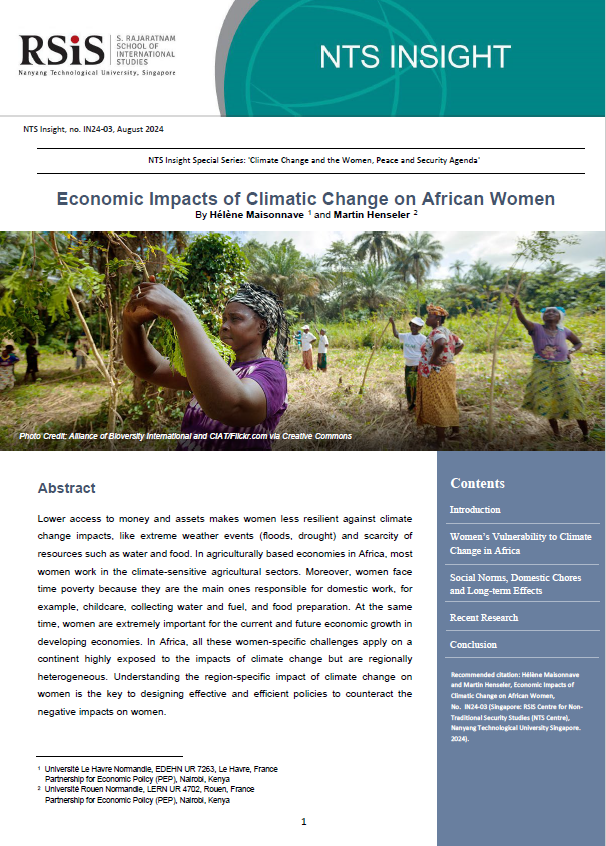08 August 2024
- RSIS
- Publication
- RSIS Publications
- Economic Impacts of Climatic Change on African Women
Abstract
Lower access to money and assets makes women less resilient against climate change impacts, like extreme weather events (floods, drought) and scarcity of resources such as water and food. In agriculturally based economies in Africa, most women work in the climate-sensitive agricultural sectors. Moreover, women face time poverty because they are the main ones responsible for domestic work, for example, childcare, collecting water and fuel, and food preparation. At the same time, women are extremely important for the current and future economic growth in developing economies. In Africa, all these women-specific challenges apply on a continent highly exposed to the impacts of climate change but are regionally heterogeneous. Understanding the region-specific impact of climate change on women is the key to designing effective and efficient policies to counteract the negative impacts on women.
Abstract
Lower access to money and assets makes women less resilient against climate change impacts, like extreme weather events (floods, drought) and scarcity of resources such as water and food. In agriculturally based economies in Africa, most women work in the climate-sensitive agricultural sectors. Moreover, women face time poverty because they are the main ones responsible for domestic work, for example, childcare, collecting water and fuel, and food preparation. At the same time, women are extremely important for the current and future economic growth in developing economies. In Africa, all these women-specific challenges apply on a continent highly exposed to the impacts of climate change but are regionally heterogeneous. Understanding the region-specific impact of climate change on women is the key to designing effective and efficient policies to counteract the negative impacts on women.





